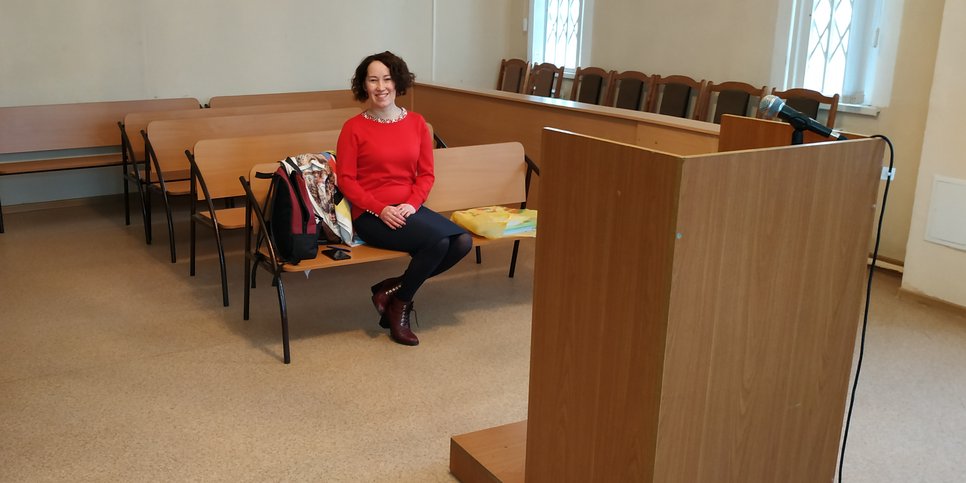In the photo: Ekaterina Pegasheva
In the photo: Ekaterina Pegasheva
The Appeal in Yoshkar-Ola Upheld the Suspended Sentence of 31-year-old Yekaterina Pegasheva
Mari ElOn August 4, 2021, the Supreme Court of the Republic of Mari El rejected Ekaterina Pegasheva's appeal against the verdict. The believer was sentenced to 6.5 years probation with a probation period of 4 years for talking on spiritual topics, which the court considered "organizing the activities of a banned organization."
The verdict entered into force. The believer still insists on her innocence and can appeal the verdict on appeal, as well as in international instances. In her last word, Pegasheva drew the attention of the court of appeal: “Since I, as a citizen of the Russian Federation, am a social person and cannot exist on my own, I interact, communicate with people. Coming to work, people cannot help but talk, because they are connected by a single theme - work. And if it is about faith in God? Can a believer talk to people about his God? Or can he talk about him [only] with himself or with some objects? "
On October 3, 2019, in the Pegasheva case, searches were carried out at three addresses: two in Yoshkar-Ola and one in the village of Pirogovo (Kirov region) where her mother lives. The security forces seized books, videotapes, electronic devices, personal letters and documents, including a school certificate and a certificate of passing the exam. After the arrest, Yekaterina spent about 4 months in the pre-trial detention center. Then she was under house arrest for another 500 days.
Ekaterina Pegasheva became accused of organizing the activities of a banned organization, because, according to the investigation, she "deliberately continued illegal activities" - after the ban on religious organizations of Jehovah's Witnesses in Russia, she did not stop practicing her faith and continued to talk with others about the Bible. According to law enforcement officers, with all of this, Catherine committed "a grave crime against the foundations of the constitutional order and security of the state."
Hearings in the Gornomariyskiy District Court, which have been going on since October 2020 for 8 months, indicated the groundlessness of the accusations against the believer. The secret witness on the part of the prosecution "Petrov" admitted that exclusively peaceful topics were discussed at the meetings of Jehovah's Witnesses. According to another prosecution witness, people talked about God at the services, and Pegasheva never called those present to unlawful actions, as the investigation and the state prosecutor argued, who eventually demanded that Catherine be sent to jail for 7 years.
Due to unreasonable criminal prosecution for religious beliefs, Catherine lost her job. This deprived her of the opportunity to help loved ones. A young woman helps her mother take care of her bedridden grandmother. According to the believer, stress deprived her of her strength and health.
Russian and foreign leaders and organizations are concerned about the situation in Russia with regard to Jehovah's Witnesses. In particular, Heiner Bielefeldt, professor at the University of Erlangen-Nuremberg, who has served as UN Special Rapporteur on freedom of religion or belief since 2010, explains: “The concept of 'extremism' in legislation remains completely blurred. Which creates a kind of loophole for the authorities, an excuse to do what they want. And Jehovah's Witnesses are the perfect scapegoat. Indeed, many people regard them with suspicion: Jehovah's Witnesses are active, engaged in missionary work. Not everyone likes it - even if they do it exclusively for peaceful purposes - but they exercise their right to freedom of religion and belief. " He sums up: "If Jehovah's Witnesses are extremists, then we are all extremists.

